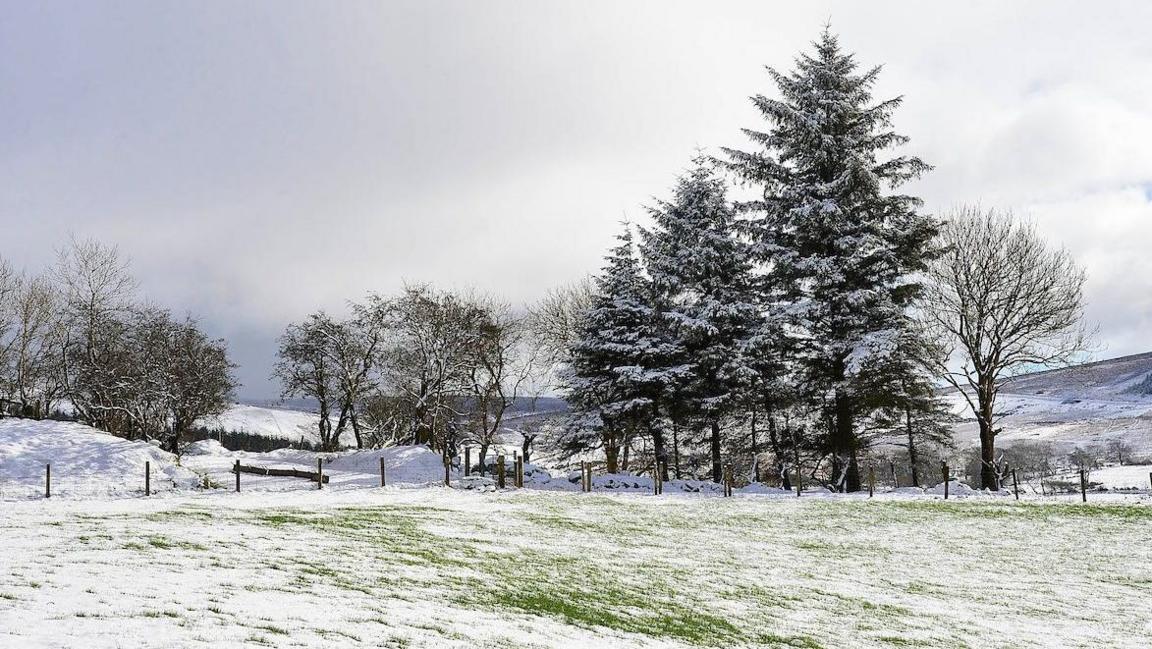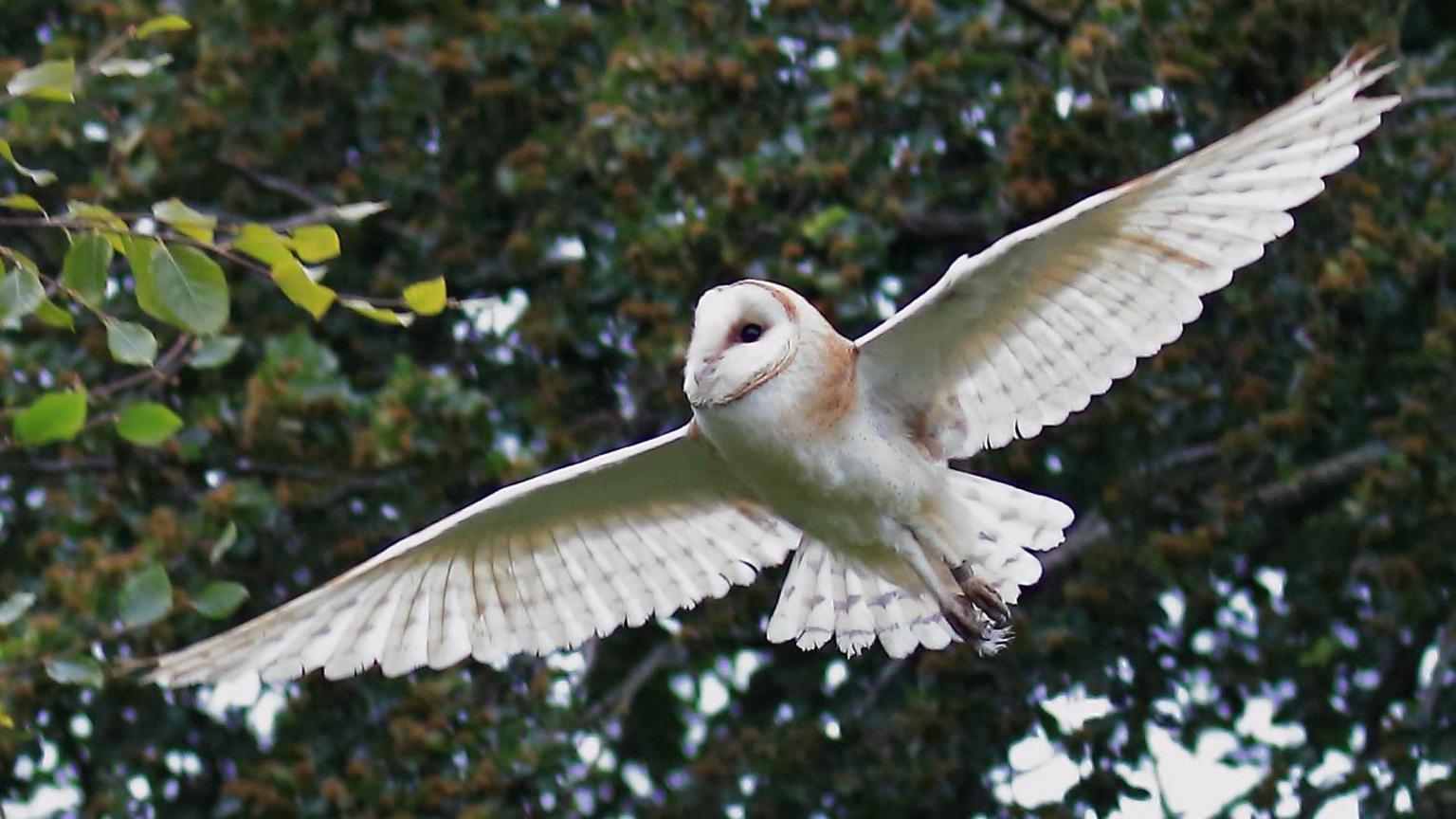NI lost eight days of wintry weather 'due to climate change'

The study found that in Northern Ireland there were, on average, eight fewer days each winter when the temperature dropped below zero
- Published
New analysis of long-term weather data shows that in the last decade Northern Ireland has lost eight days of wintry weather because of man-made climate change.
The research, published by the US based non-profit Climate Central, looked at the number of days in December, January and February when the minimum temperature remained above freezing.
Kristina Dahl is the vice president for science at Climate Central.
"The UK is seeing fewer winter days with minimum temperatures falling below zero because of climate change," she said.
"In fact, on average the UK now sees an additional 11 nights during the winter where minimum temperatures stay above freezing."

There are fewer than 30 breeding pairs of barn owls left in Northern Ireland
Across the the UK, England had 12 fewer winter days, with Wales and Scotland each losing 10 days with sub-zero minimums.
The moderating influence of the Atlantic and the Irish Sea means that Northern Ireland is the most temperate part of the UK, and therefore the least affected by large fluctuations in temperature.
Yet even in Northern Ireland there were, on average, eight fewer days each winter when the temperature dropped below zero.
For Northern Ireland, climate change - due primarily to burning oil, coal, and methane gas - means warmer, wetter winters.
Whilst that might reduce the need for domestic heating, it can cause significant issues for wildlife and our biggest industry agriculture.
With fewer than 30 breeding pairs left in Northern Ireland the future for some endangered species like barn owls is even more precarious.

Katy Bell, from Ulster Wildlife, said wet weather is "one of the most significant" challenges for barn owls
Katy Bell is the senior conservation officer at Ulster Wildlife.
"Barn owls face numerous challenges, and wet weather is one of the most significant.
"Unlike many birds, their feathers are not waterproof, which means they cannot hunt during periods of heavy or prolonged rain," she said.
Research carried out jointly by Ulster Wildlife and the Met Office showed that high rainfall and low temperatures during critical nesting months negatively affected the survival rate of barn owl chicks.
As winters become wetter due to climate change, these conditions pose an even greater threat to their survival.